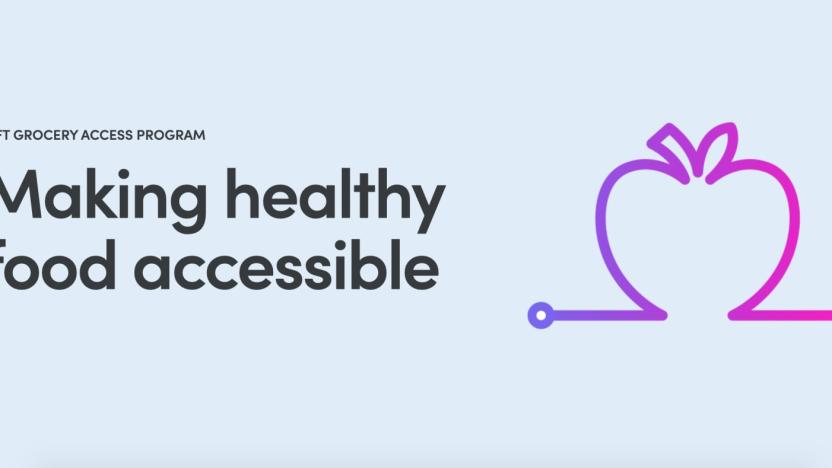healthy eating
Latest

Lyft expands Grocery Access Program to Baltimore, Chicago and NYC
This spring, Lyft announced its Grocery Access Program, which provided low-income families in select cities a flat-rate ride to the grocery store. The company's goal is to make healthy food more widely available, charging an average of $2.50 per ride to partnered stores. (Lyft absorbs additional costs up to $16, so drivers have an incentive to participate.) Today, the company announced that the program will expand to serve residents in Baltimore, Chicago and the New York City area.

Lyft offers flat fares for people living far from grocery stores
We've seen a range of partnerships between ride-share apps and grocery stores in recent times. Walmart and Uber teamed up last year, for example, while Asia's Grab has expanded to include grocery delivery. And, of course, there are multiple companies experimenting with grocery delivery via autonomous vehicles. But none of these initiatives address a major underlying issue in getting food to the people who want it: cost. Today, though, Lyft is launching a national Grocery Access Program that aims to make healthy food more cheaply and easily accessible to millions of Americans.

Food Practice Shooter: TGS 2013's nutritional AR chewing/light-gun game
Attending the Tokyo Game Show is like hunting for treasure without a map. Invariably, somewhere on the show floor is a hidden gem that makes the whole trip really special, and for TGS 2013 that diamond in the rough was Food Practice Shooter. Abbreviated to FPS (get it?), Food Practice Shooter is the brainchild of assistant professor Dr. Takayuki Kosaka of the Kanagawa Institute of Technology. The idea is fairly simple, though its execution is a bit more convoluted: In order to obtain more ammo in-game, the player must eat healthy foods in real life. The system has three high-sensitivity scales that measure the weight of three cups of vegetables. When prompted by the game, the player removes some food from the required cup, which slightly lessens the load on the scale, which in turn communicates to the game which type of food has been taken. Then, a head-mounted sensor measures the movement of your cheek, telling the game whether you've eaten your veggies like a good boy/girl. There's probably a less obtuse way to encourage healthy eating habits in today's youth, but where's the fun in that? Strap this thing to your face and shoot this zombie tomato or no dessert.

IBM wins diet monitoring and reward patent, celebrates with sip of Spirulina
Does your employer offer a "wellness rebate program?" No? Then you can't be working for IBM, which has been bribing its staff to eat healthier since 2004. It's a Watson-worthy idea, because what the company pays out in incentives it recoups in lower healthcare costs. Now, after a decade of toing and froing with the USPTO, IBM has finally patented a web-based system that makes the whole process automatic. For it to work, a person must use a micro-payment network to buy food, which allows their purchases to be monitored and compared against their health records. If they've made the right choices, the system then communicates with their employer's payroll server to issue a reward. Completing the Orwellian circle, the proposed system also interacts with servers in the FDA and health insurance companies to gain information about specific food products or policy changes. You can duck the radar, of course, and buy a Double Whopper with cash, but it'll bring you no reward except swollen ankles. This is IBM we're talking about; they've thought of everything. [Photo via Shutterstock]



